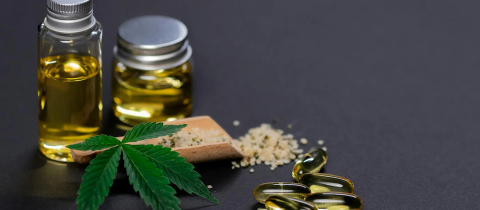This article was first published in The Montreal Gazette.
It’s been nearly a year since cannabis was legalized in Canada and most of the more dire predictions about legalization turned out not to be true. However, one aspect of legalization is concerning from the medical point of view. An obstetrician-gynecologist colleague of mine pointed out to me that we are seeing an increasing number of women who use cannabis while pregnant.
Cannabis is actually the most common illicit drug used during pregnancy. While smoking and alcohol consumption during pregnancy are going down, cannabis use is going up. Daily use and use during the first trimester in particular are increasing. Given that marijuana has also become more potent over time, there is reason for concern.
When it comes to balancing the risks vs. the benefits of cannabis use, even today the data are a bit uncertain. There are certainly risks to cannabis use especially when talking about heavy use starting at a young age. There are also some potential medical applications to cannabis, or more precisely for the chemical cannabidiol (CBD), although the evidence base here is far shakier than people realize.
But there tends to be widespread consensus that people should not use cannabis while pregnant. The American Academy of Obstetricians and Gynecologists warns against the practice and with good reason. A recent matched cohort analysis using Ontario health data found that cannabis use was associated with more preterm births (10.2 per cent vs. 7.2 per cent). The babies were also smaller, more likely to be transferred to the neonatal ICU, and there was a very small increase in the number of stillbirths.
The risk of preterm births has not been consistently observed in all studies. A 2016 meta-analysis(which obviously did not include the recent Ontario study) did not find an increased risk. Research in the area has proven difficult partly because of confounders like smoking. Since people who smoke marijuana are also more likely to smoke tobacco, it becomes debatable how much of the increased risk is due to smoking and how much due to marijuana. However, even the studies that showed no increase in preterm births have shown an increase in neonatal morbidity and death. Also there remains considerable concern about the long-term effects cannabis can have on the fetus’s developing brain.
The growing popularity of cannabis is likely due to a number of factors. Legalization makes a product more socially acceptable and consequently more people may erroneously believe that because a product is legal, it must be safe. Data from the U.S. National Survey on Drug Use and Health database have shown that the proportion of women who believed that marijuana use was of no risk during pregnancy rose from 4.6 per cent to 19 per cent between 2005 and 2015.
Unfortunately, it would seem that health-care professionals are not good sources of information for pregnant women. One study found that only half provided counselling when informed of marijuana use during pregnancy and this often focused on the legal rather than the medical consequences. In fact, women reported that it was difficult to find reliable information on cannabis use during pregnancy and often relied on anecdotal advice from friends or family. Some relied on the advice from cannabis dispensaries, although in one study 70 per cent of Colorado dispensaries recommended marijuana as a treatment for morning sickness, which it most certainly is not. Unfortunately, for those looking to the internet for medical guidance, Twitter is not much better.
Clearly, how we as a society view cannabis has changed drastically in the past decade and has led to its general acceptance and legalization. But we should not forget that there are potential risks to its use, and regardless or whether you support its legalization or not, probably best to avoid it while pregnant.
Want to comment on this article? Visit our FB page!







